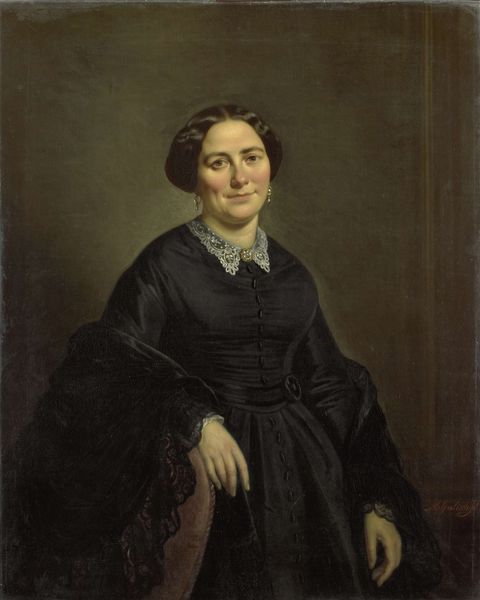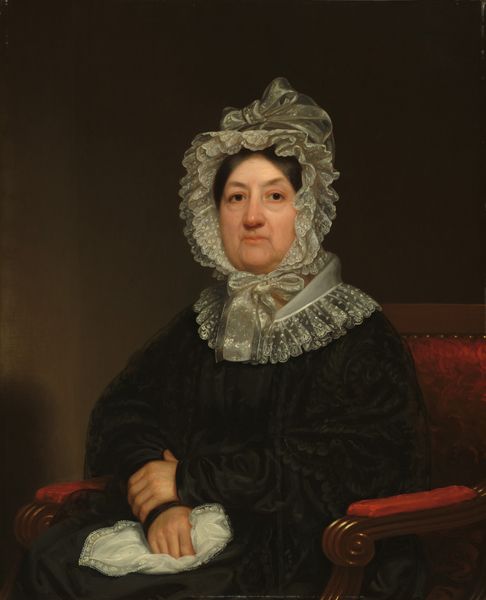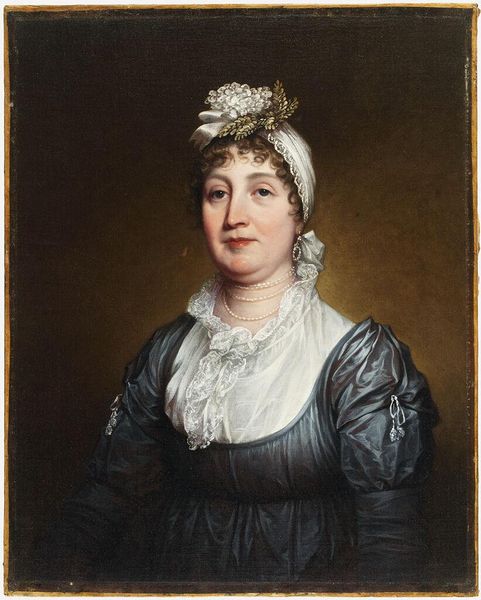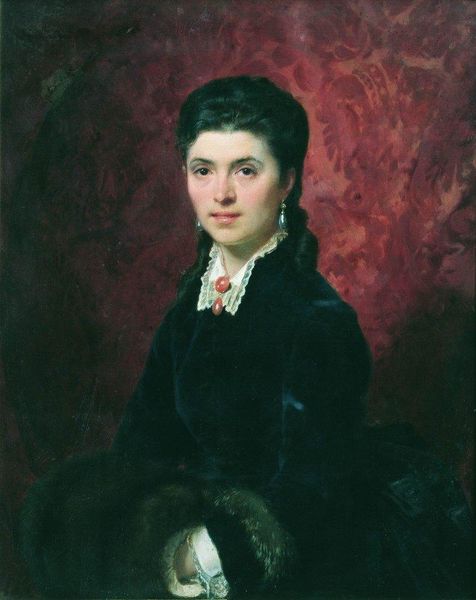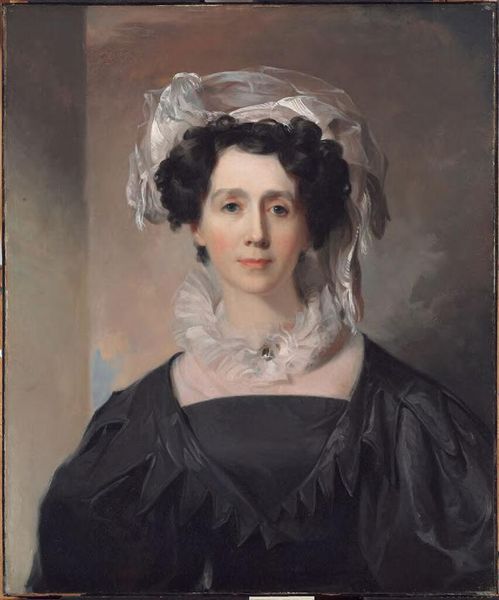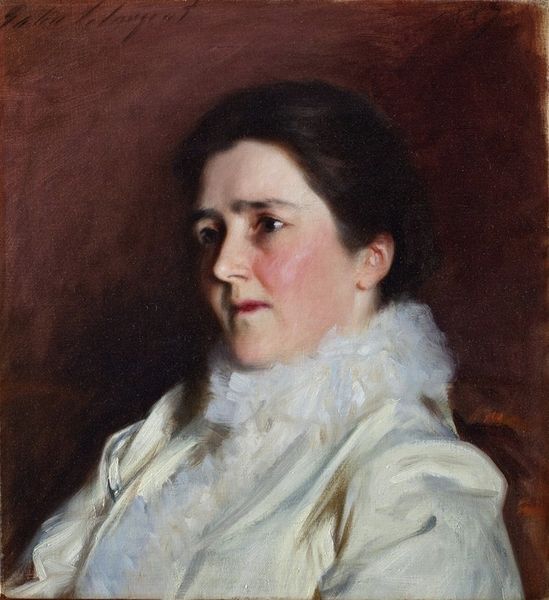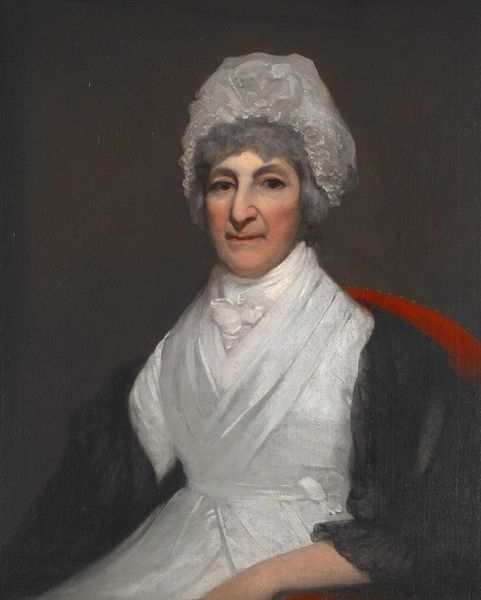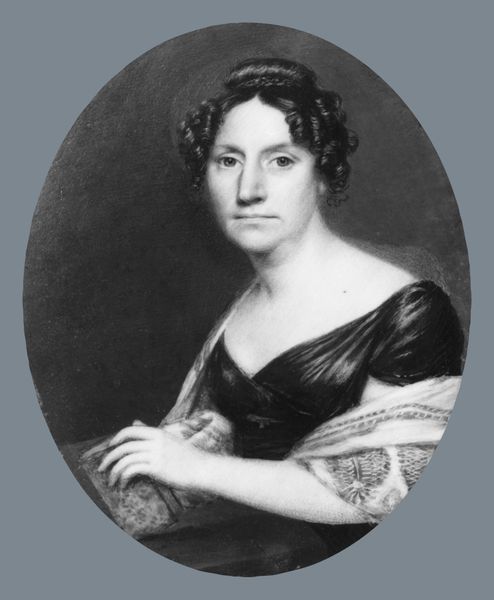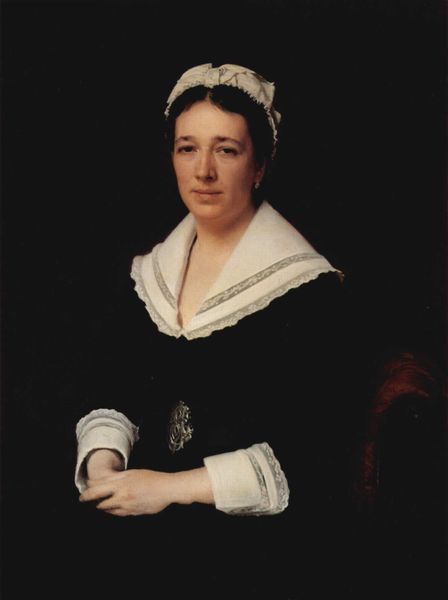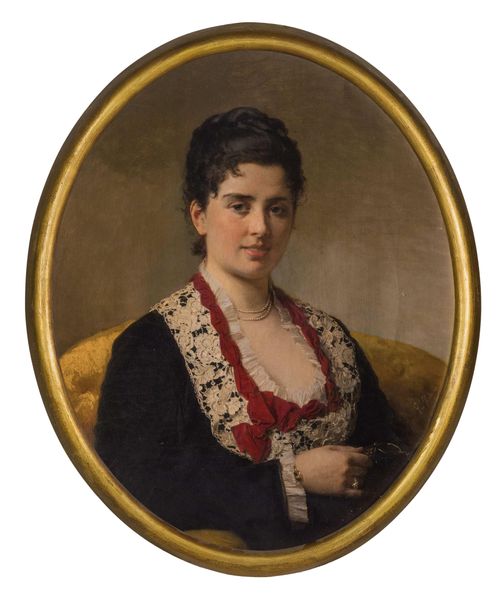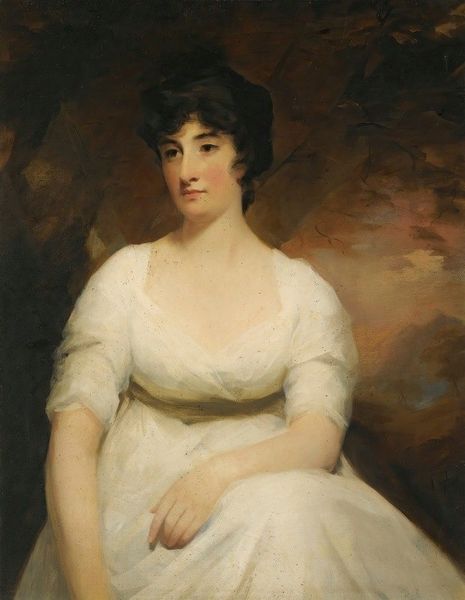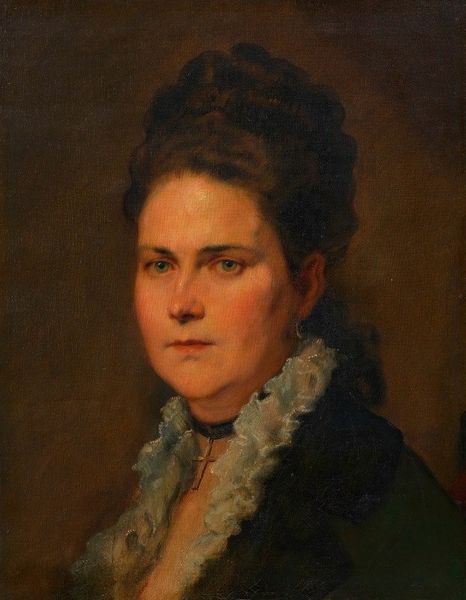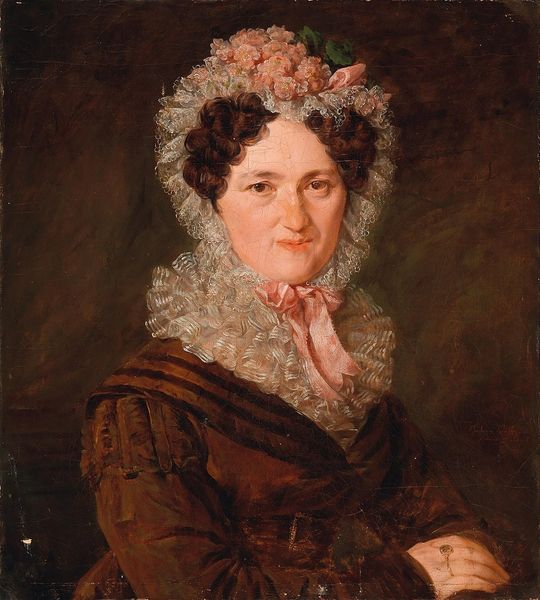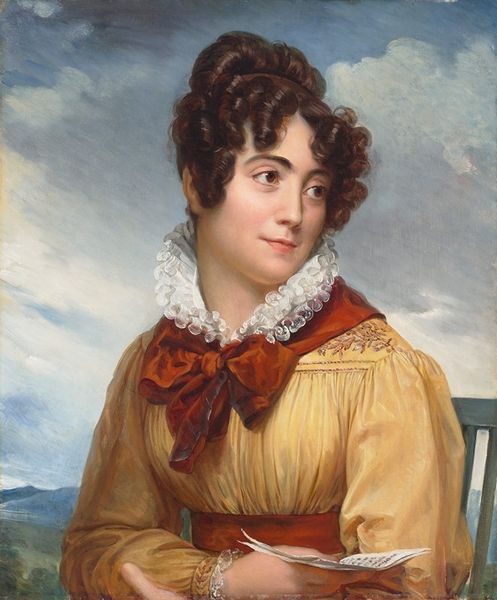
Copyright: Public domain
Curator: Oh, this is intriguing! We have here Fyodor Bronnikov's "Portrait of the Artist's Wife," rendered in oil paint back in 1889. Doesn't she just exude a sense of... reserved power, almost? Editor: Power, really? I see weariness, a quiet stoicism maybe. The darkness surrounding her seems to press in, and while the blue of her dress is vibrant, it's almost fighting a losing battle against the encroaching shadows. Curator: I love that you picked up on the shadows! Bronnikov really plays with the romanticism style here to create something far deeper than mere surface. Think of the oval composition; it feels almost like looking at a cherished cameo, a captured moment. The face looms in and, yes, it tells you something about weariness. Editor: Absolutely, the framing is quite clever—or perhaps, overtly sentimental. The choice to cast so much of the composition into shadow feels deliberate. The eye struggles to find purchase, save for her face and the splash of lace at her throat. Is it trying to tell me she is not able to show a happy life or is the painter emphasizing on certain facial feature and objects by casting everything into shadow? Curator: Or it could be drawing our eye precisely where Bronnikov wants, which are those delicate lace details, and perhaps, more importantly, her gaze. Do you feel her eyes looking directly at you or away from you? I have pondered what makes the painting a painting and not just an exercise of painting technique. Editor: That is an interesting question, I was captivated how she sits facing us directly but appears lost in thought and is distracted by a question within herself or something beyond the viewer, making the us— the viewer, into intruding bystanders on an important encounter. Curator: Exactly! And don't forget the slight asymmetry—a touch more cheek on one side. It's those little imperfections, embraced and highlighted by the style, that truly humanize the portrait. To me the fact that Bronnikov highlights and loves his wife in such style means a lot more. What more is a painting if there isn't love? Editor: A good point! The way it conveys subtle nuances rather than obvious declarations, that truly encapsulates its romantic charm and is what separates great artworks from mundane imitations. I am curious what you felt about the choice to exclude some details and casting things to the shadows. I think there is a meaning of loss there as if something great has been lost forever to time and events. Curator: And maybe that loss, felt so acutely in her eyes, is part of the story Bronnikov is so skillfully telling. It's that touch of reality which stays with you, that subtle power. What a delightful painting this is! Editor: I'll say! Next artwork please... I am very glad that we could feel more depth and connect in an emotional level to appreciate this artwork.
Comments
No comments
Be the first to comment and join the conversation on the ultimate creative platform.
